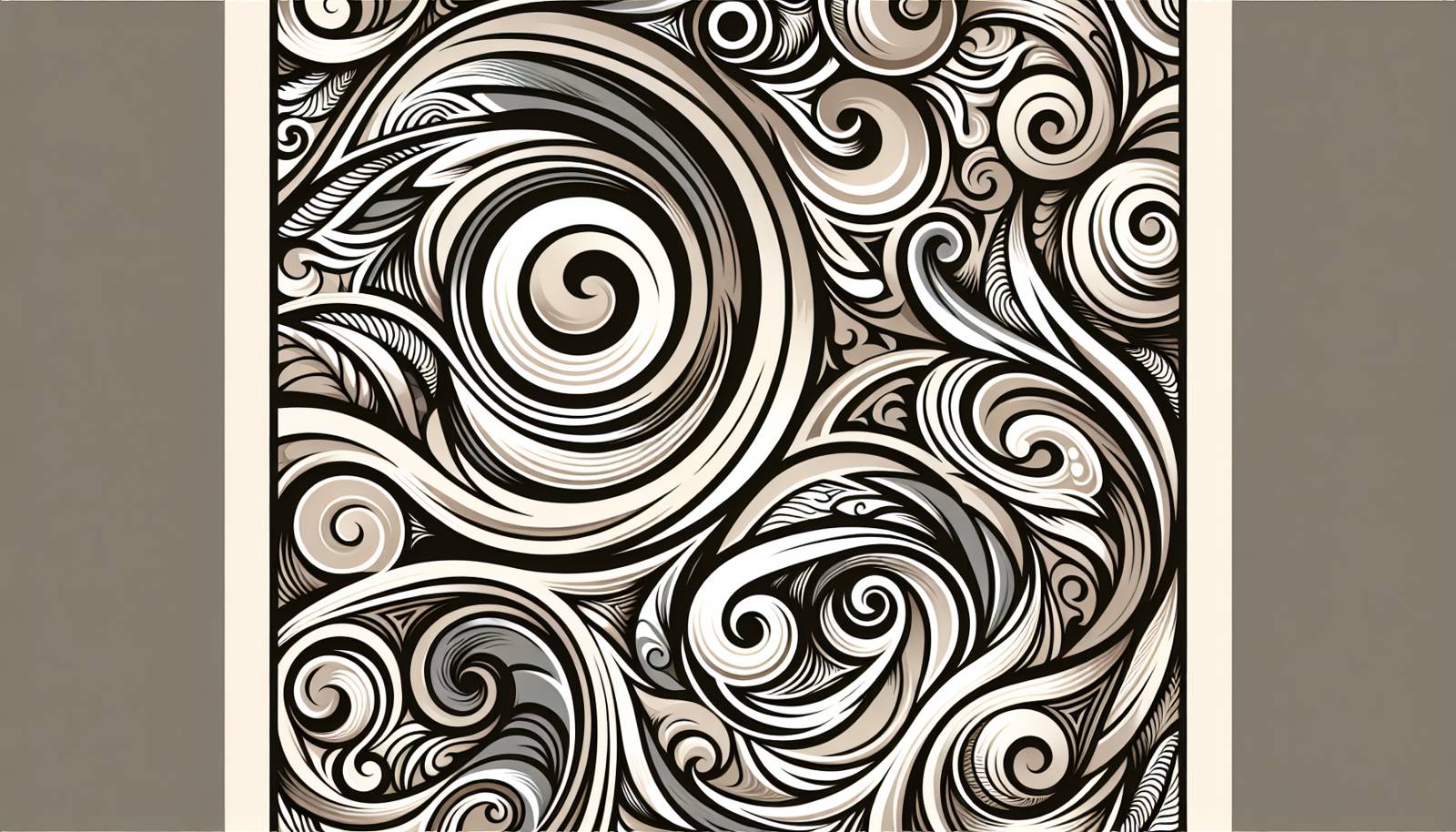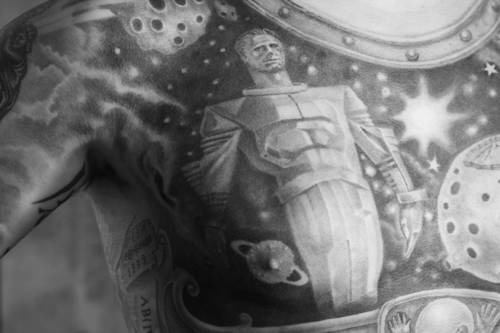
FAQ About The Cultural Significance of Tattoo Art Across Cultures

What is the historical significance of tattoos in Polynesian culture?
In Polynesian culture, tattoos are highly significant and serve as a form of identity and status. They are considered sacred and are believed to connect an individual with their ancestors through symbols that represent genealogy, lineage, and personal achievements. Tattoos in this culture are not just decorative; they serve as a language through which life's milestones and personal stories are communicated.

How are tattoos used for spiritual purposes in different cultures?
Across various cultures, tattoos are imbued with spiritual significance. In some cultures, tattoos are believed to provide protection, act as talismans, or serve as markers of religious belief. For example, in Buddhism, certain tattoos are considered to harness spiritual energy or provide blessings. In other contexts, tattoos can be part of rites of passage, marking spiritual maturity or enlightenment.

What roles do tattoos play in social communication within cultures?
Tattoos can function as powerful tools for social communication, helping to express beliefs, affiliations, or social status. They may identify members of specific groups, such as clans or tribes, indicate social rankings or achievements, or even serve as resistance symbols against cultural or political oppression. By conveying these meanings visually, tattoos become a non-verbal language within societies.

What is the significance of the Japanese Irezumi tattoo?
Japanese Irezumi tattoos are deeply rooted in cultural history and often symbolize protection, cultural identity, and artistic expression. These tattoos typically feature motifs like dragons, koi fish, and cherry blossoms, each imbued with specific meanings, such as strength, perseverance, and beauty. Historically, Irezumi has been associated with both art and a statement of defiance against social norms.

How does tattoo art differ between Native American tribes?
Tattoo art varies significantly between Native American tribes, each with distinct meanings and symbols. Some tribes use tattoos to signify milestones such as coming of age or courageous acts in battle. Others use them for spiritual protection or as a representation of tribal identity and personal stories. The style, placement, and symbolism depend heavily on the tribe's unique cultural traditions.

What is the cultural importance of Maori tattoos?
Maori tattoos, known as Ta Moko, hold profound cultural importance as they reflect ancestral history, social status, and personal achievement. These tattoos are more than body art—they are a rite of passage and a connection to Maori identity. The designs are unique to the individual and tell stories of lineage, knowledge, and responsibilities within the tribe.

Are there common misconceptions about tattoo art in global cultures?
Yes, there are several misconceptions about tattoos across cultures. One common misconception is that all tattoos are purely decorative rather than carrying significant personal or cultural meaning. Another is the stereotyping of individuals with tattoos as rebellious or deviant, ignoring the rich traditions and spiritual purposes that tattoos hold in numerous cultures.

How did tattoos serve as indicators of social status in historical cultures?
In many historical cultures, tattoos were markers of social status and accomplishments. For example, in ancient Egypt, tattoos were believed to denote privileged status or protection against evil. Similarly, among the Maori and Samoan peoples, specific tattoo patterns signified noble lineage or achievements, serving as visible indicators of a person's role and importance in society.

What types of tattoo designs are common in Celtic culture?
Celtic tattoo designs frequently feature intricate knotwork, spirals, and symbols like the Celtic cross or the Claddagh. These designs carry meanings related to spirituality, eternity, and interconnectedness. The use of animals such as dragons and birds in these tattoos often symbolizes courage, freedom, and power. These symbols reflect the rich mythology and spiritual beliefs of the Celtic people.

How has tattoo art been used as a form of protest or political expression?
Tattoos have often been adopted as a form of protest or political expression, symbolizing resistance and solidarity. In some cultures, tattoos have been used to challenge oppressive regimes or social norms. For example, during times of political unrest, individuals might adopt tattoos that represent freedom, unity, or commemorate individuals who symbolize rebellion or change.

What is the role of tattoos in modern tribal societies?
In modern tribal societies, tattoos continue to play roles in cultural identity, social status, and rite-of-passage ceremonies. While some traditional tattoo practices have evolved, the underlying importance often remains, retaining their significance in marking significant life events, affirming identity, and maintaining connections to cultural heritage.

How do Hindu traditions incorporate tattoos?
In Hindu traditions, tattoos often symbolize religious beliefs and spiritual wisdom. Traditional henna tattoos, known as Mehndi, are used in ceremonies and festivals, particularly weddings, to offer blessings and well-being. Permanent tattoos can feature deities or symbols like the Om sign, reflecting one's devotion and faith.

Can tattoos serve as historical documents in any culture?
Yes, tattoos can act as historical documents in certain cultures. They can encapsulate a person's genealogy, achievements, and social status, serving as a narrative of their life's journey. Among the Maori, for example, Ta Moko tattoos carry encoded family history and personal milestones, which are passed down through generations.

How does tattooing relate to rites of passage across cultures?
In many cultures, tattoos are integral to rites of passage, marking important transitions such as adulthood, marriage, or spiritual enlightenment. These tattoos symbolize the individual's commitment to cultural values and societal roles. For instance, among the Mentawai people, tattoos signify coming of age and the responsibilities that accompany adulthood.

Are there any gender-specific tattoo practices in cultures worldwide?
Yes, many cultures have distinct tattoo practices based on gender. For example, in traditional Samoan society, males and females receive different tattoo types (the Pe'a for men and the Malu for women), each bearing unique patterns and meanings related to gender roles and cultural responsibilities. Similar distinctions can be seen in other cultures where tattoos express gender-specific spiritual or social purposes.

What cultural impact has globalization had on traditional tattoo practices?
Globalization has led to the spread and adaptation of traditional tattoo practices, resulting in a fusion of styles and meanings. While this has popularized many cultural tattoos globally, it sometimes raises concerns about the loss of original significance and the appropriateness of cultural symbols being used out of context. It prompts dialogues on cultural appreciation versus appropriation.

How do African tribal tattoos differ from other cultures?
African tribal tattoos often incorporate scarification techniques and symbolize beauty, strength, and social identity. Unlike ink-based tattoos common in other cultures, scarification involves cutting the skin to create raised patterns that are highly personal and deeply connected to tribal history and spirituality.

What are some unique features of the Filipino tattooing tradition?
Filipino tattooing, known as Batok, involves traditional hand-tapping methods using indigenous tools. These tattoos often symbolize bravery, individual achievements, and ancestral lineage. Among tribes like the Kalinga, tattoos are cultural treasures that honor warriors and represent protection, fertility, and spiritual guidance.

Why were tattoos historically stigmatized in certain Western cultures?
In some Western cultures, tattoos were historically stigmatized due to associations with criminality, rebellion, and subcultures viewed as outside the societal norm. This perception was reinforced by portrayals in media and literature. Over time, the stigma has declined, as tattoos have gained acceptance and appreciation as personal and artistic expressions.

How do cultural beliefs influence the design and placement of tattoos?
Cultural beliefs play a significant role in determining both the design and placement of tattoos. Specific symbols might be chosen for their cultural meanings, such as protection, heritage, or spiritual beliefs. The location of tattoos can also carry meaning—for instance, certain tribes place tattoos on visible parts of the body to signify achievements or social roles prominently.
